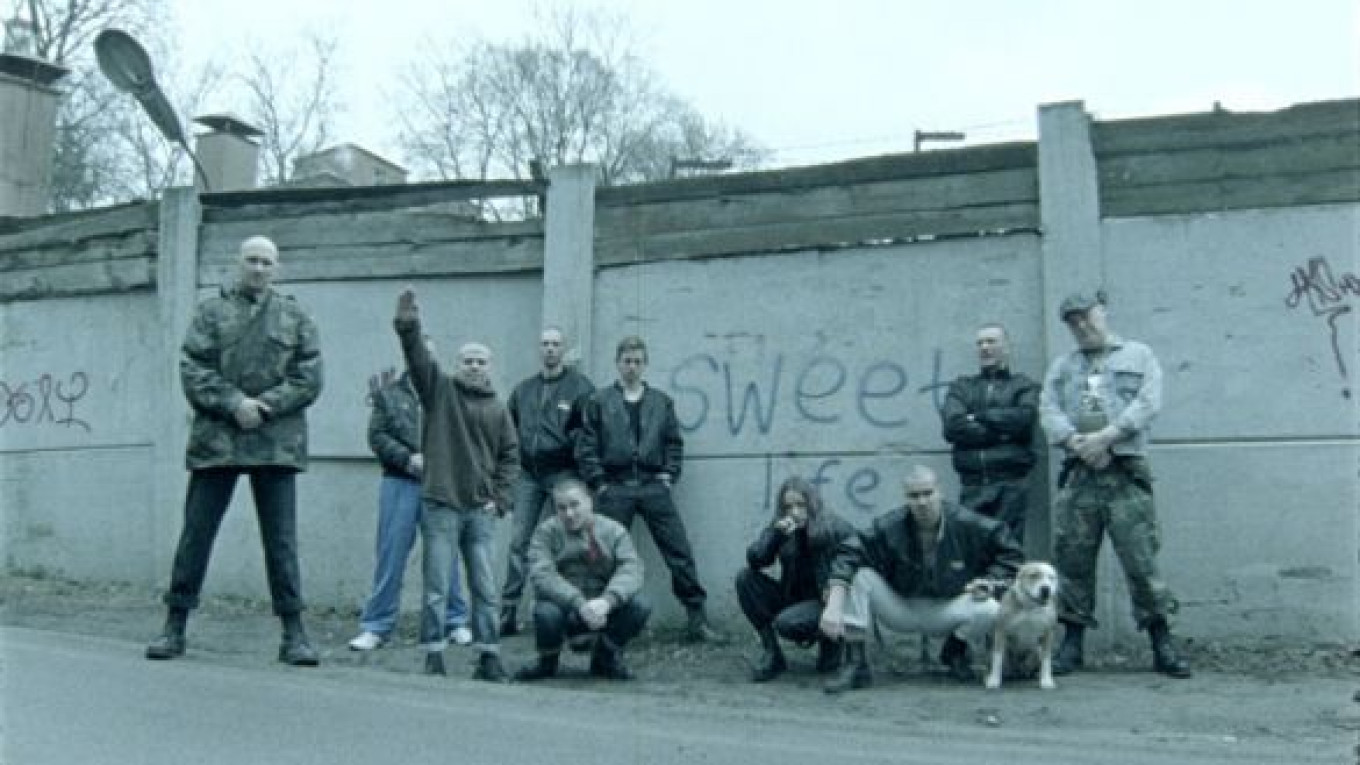Samara prosecutors asked a local court last year to ban the film, “Russia-88,” because of numerous ethnic slurs made by its characters.
But the Prosecutor General’s Office ordered Samara prosecutors on Thursday to withdraw its court request ahead of a review of the case.
If a court were to declare the film as extremist, the Justice Ministry would automatically put it on a list of banned extremist materials. Distribution of extremist materials is punishable by a fine.
In their filing, Samara prosecutors cited an assessment from Samara State University professor Shamil Makhmudov, who said “Russia-88” contains hate speech and propagates race supremacy.
The Prosecutor General’s Office said in a statement that it has received two similar assessments from other experts.
But the three assessments are incomplete and therefore require a review before the extremism request is sent to court, prosecutor’s office spokeswoman Marina Gridneva said in the statement.
“Since those findings were not presented in full, and parts of the findings do not correspond with one another, further expertise is needed,” she said.
“Russia-88” director Pavel Bardin welcomed the order to pull the court case for a review and said he believed that the film would not be banned now.
He said he had obtained assessments from specialists on extremism who found that the film was not extremist.
“There have been a number of different assessments, and no experts have considered this film extremist,” he told The Moscow Times.
The film, released in 2008, is a mock documentary about the daily lives of a skinhead gang. While it did not have a nationwide release, it was shown in a number of movie theaters around the country and won prizes at a Khanty-Mansiisk film festival in March and the Berlin Film Festival in June. The film’s main protagonist is a young skinhead leader who hates and attacks dark-skinned people, only to find out that his sister is dating a native of the Caucasus. While the film is fictional, it is made in a mock documentary style and includes interviews between the actors and real Russians who speak against dark-skinned people in Russia.
“I wanted to make a film that presents conflicting opinions,” Bardin said. “That means the movie had to touch on painful subjects.”
“Russia-88” is Bardin’s first serious movie. The son of prominent animator Garry Bardin, he previously worked on pure entertainment projects including the “Club” series on Russian MTV.
• A State Duma deputy has called on the latest installment in the “Call of Duty” video game series to be included on the Justice Ministry’s list of extremist materials, Itar-Tass reported Thursday.
Valery Seleznev, a deputy with the Liberal Democratic Party, said “Call of Duty: Modern Warfare 2” contains “multiple and detailed scenes of violence” and allows players to destroy an airport and kill an agent from the Federal Security Service. The first-person shooter game, which has raised concerns in several countries, topped $1 billion in global sales this week.
A Message from The Moscow Times:
Dear readers,
We are facing unprecedented challenges. Russia's Prosecutor General's Office has designated The Moscow Times as an "undesirable" organization, criminalizing our work and putting our staff at risk of prosecution. This follows our earlier unjust labeling as a "foreign agent."
These actions are direct attempts to silence independent journalism in Russia. The authorities claim our work "discredits the decisions of the Russian leadership." We see things differently: we strive to provide accurate, unbiased reporting on Russia.
We, the journalists of The Moscow Times, refuse to be silenced. But to continue our work, we need your help.
Your support, no matter how small, makes a world of difference. If you can, please support us monthly starting from just $2. It's quick to set up, and every contribution makes a significant impact.
By supporting The Moscow Times, you're defending open, independent journalism in the face of repression. Thank you for standing with us.
Remind me later.


